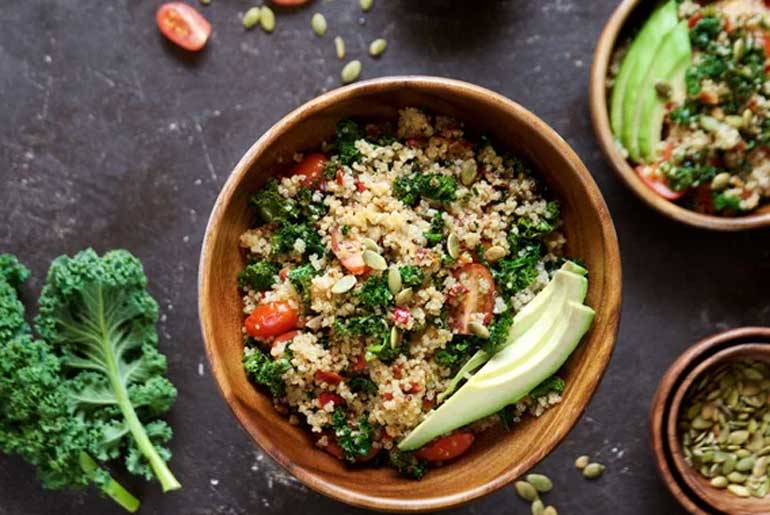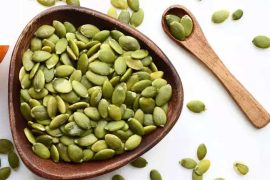The connection between diet and yoga is profound, as consuming foods that energize and prepare the mind can significantly enhance one’s practice. Opting for light, easily digestible foods over high-calorie snacks is crucial for maximizing the benefits of yoga, particularly during morning sessions. Prior to starting a yoga session, it’s essential to ensure adequate hydration, focusing on liquids rich in electrolytes like coconut water. A bowl of fruits, with their abundance of antioxidants and fiber, serves as an excellent choice to maintain energy levels and feel refreshed throughout the practice. Pre- and post-Yoga dietary choices with yoga practice, individuals can cultivate a harmonious balance between nourishing the body and calming the mind.
After completing a yoga session, it’s recommended to wait for 30-40 minutes before consuming a meal to allow the body to better prepare for nutrient absorption. This post-yoga period is ideal for indulging in a balanced diet that incorporates all necessary food groups, including protein, vitamins, minerals, complex carbohydrates, and healthy fats. Protein, in particular, plays a crucial role in aiding muscle recovery after yoga practice. Therefore, incorporating protein-rich foods into the post-yoga meal can support the body’s healing process and replenish energy stores effectively. By embracing a well-rounded diet following yoga, individuals can optimize their physical recovery and overall well-being.
“Embarking on a yoga journey involves not only mindful movement and breath but also thoughtful consideration of the fuel you provide your body. Choosing the right foods before and after a yoga session can significantly impact your energy levels, focus, and recovery,” states Dr Rohini Patil, MBBS & Nutritionist Founder of Nutracy Lifestyle.
Foods to have before Yoga:
- Whole grains: Incorporating whole grains like oatmeal or quinoa into your pre-yoga meal can provide sustained energy without weighing you down. These complex carbohydrates release energy gradually, helping to fuel your practice.
- Fresh fruits: Opt for fresh fruits like apples, oranges, or grapes as they are easily digestible and provide a quick source of natural sugars to fuel your workout. They also contain essential vitamins and minerals to support overall health and vitality.
- Yogurt or smoothies: A small serving of yogurt or a smoothie made with fruits, vegetables, and protein-rich ingredients like Greek yogurt or protein powder can be a satisfying pre-yoga snack. The combination of carbohydrates and protein helps to stabilize blood sugar levels and promote muscle recovery.
- Herbal tea: Sipping on herbal tea like chamomile or peppermint before your yoga session can help calm the mind and relax the body. Avoid caffeinated beverages as they may interfere with your ability to focus and stay grounded during your practice.
- Nuts and seeds: Snacking on a handful of nuts or seeds such as almonds, walnuts, or pumpkin seeds can provide a good source of healthy fats, protein, and fiber to keep you feeling satiated and energized throughout your practice.
- Light salads: If you prefer a more substantial pre-yoga meal, opt for a light salad with leafy greens, vegetables, and a lean protein like grilled chicken or tofu. Avoid heavy dressings and opt for a simple vinaigrette to keep the meal light and easily digestible.
- Herbal supplements: Consider incorporating herbal supplements like ashwagandha or tulsi (holy basil) into your pre-yoga routine to support stress relief and overall well-being. Always consult with a healthcare professional before starting any new supplements to ensure they are safe for you.
Foods to have after Yoga:
- Leafy greens: Incorporating leafy greens like spinach, kale, or Swiss chard into your post-yoga meal can provide essential vitamins and minerals to support recovery and promote overall health. These greens are also rich in antioxidants and fiber, which aid in digestion and help to reduce inflammation in the body.
- Whole grains: Including whole grains such as brown rice, quinoa, or barley in your post-yoga meal can provide complex carbohydrates to replenish glycogen stores and sustain energy levels. Whole grains also contain fiber, vitamins, and minerals to support overall health and well-being.
- Fermented foods: Adding fermented foods like sauerkraut, kimchi, or yogurt to your post-yoga meal can help support gut health and digestion. These foods are rich in probiotics, which promote a healthy balance of gut bacteria and aid in nutrient absorption.
- Lean proteins: Incorporating lean protein sources such as tofu, tempeh, beans, lentils, or lean cuts of poultry or fish into your post-yoga meal can help support muscle recovery and repair. Protein is essential for repairing and rebuilding muscle tissue after exercise.
- Hydration: Continuing to hydrate after your yoga session is essential for replenishing fluids lost through sweat and supporting overall hydration. Aim to drink water throughout the day and consider including hydrating foods like cucumber, watermelon, or celery in your post-yoga meals and snacks.
- Mindful eating: Practice mindful eating by tuning into your body’s hunger and fullness cues and eating slowly and attentively. Pay attention to how different foods make you feel and choose nourishing options that leave you feeling satisfied and energized after your yoga practice.
By fueling your body with the right nutrients before and after your yoga practice, you can optimize your performance, support muscle recovery, and enhance your overall well-being. Remember to listen to your body and make choices that align with your individual needs and preferences.
Disclaimer:
The information contained in this article is for educational and informational purposes only and is not intended as a health advice. We would ask you to consult a qualified professional or medical expert to gain additional knowledge before you choose to consume any product or perform any exercise.







